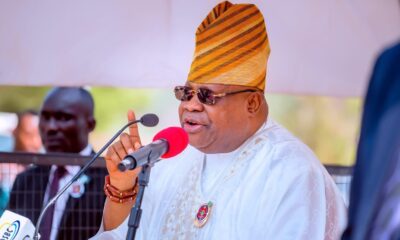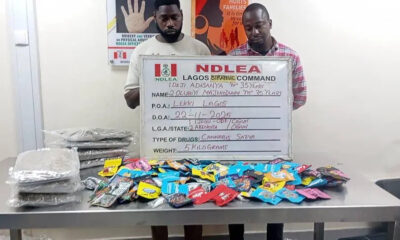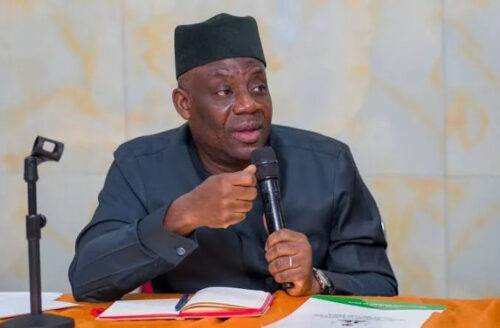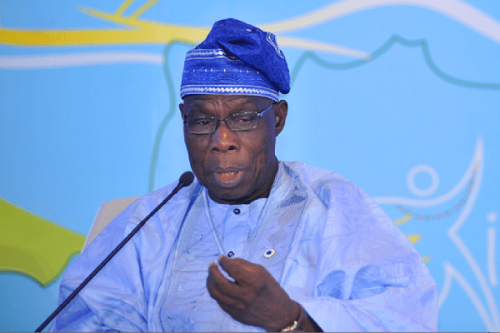The Presidency has responded to former President Olusegun Obasanjo, asserting that he lacks the credibility to criticize President Bola Tinubu over the worsening security situation in the country.
Speaking at an event in Jos, Plateau State, on Friday, Obasanjo expressed his deep concern over the escalating insecurity in the country. He suggested that Nigerians have a right to seek foreign intervention, given what he described as the government’s failure to protect its citizens adequately.
However, the government alleged that terrorism began to take root under Obasanjo’s administration, suggesting that the current security challenges are a legacy of his time in office.
The Presidency also condemned Obasanjo for suggesting that President Tinubu should seek help from foreign countries if he fails to address Nigeria’s security problems.
It called such a proposal an abdication of responsibility, emphasizing that advocating for external intervention in the nation’s internal affairs is not a sign of true leadership.
These remarks were shared in a post by the Special Adviser to the President on Media and Public Communication, Sunday Dare, on his verified X account.
Taking aim at Obasanjo, the Presidency stated that before recommending the surrender of Nigeria’s sovereignty to foreign nations, the former President should reconsider his failure to act when terrorism began to take hold during his time in office.
“Recent comments by a former President and a few habitual presidential aspirants attempting to paint the Tinubu administration as ‘unable to protect Nigerians’ are not merely hypocritical but ignoble. They ignore the hard truth: Nigeria is facing terrorists. All of them. By every definition, be they international, regional, or local.
“Yet the very individuals who looked away when these threats first sprouted now want to sit in judgment. Nigerians know better.
“The suggestion that Nigeria should effectively subcontract its internal security to foreign governments is not statesmanship; it is capitulation. Before recommending surrender, the former President should reflect on what he failed to do when these terrorists first began organising under his watch,” the statement said.
The Presidency emphasized that it is an undeniable reality that the country is under attack by terrorists, and no euphemism can alter this harsh truth.
“The people killing Nigerians, raiding villages, kidnapping innocents, blowing up infrastructure and challenging state authority are terrorists — whether they fly a foreign flag or none at all.
“Nigeria today confronts a multilayered terrorist ecosystem that includes: Internationally designated terror organisations; ISIS-linked and al-Qaeda-linked franchises across the Sahel; Local violent extremist groups masquerading as bandits; Cross-border terrorist cells exploiting porous frontiers; Ideological insurgents and criminal-terror hybrids operating in ungoverned spaces.
“These actors collaborate. They share money, ideology, weapons, intelligence and logistics. Their goal is the same: to break the Nigerian state and subjugate its people. Let’s call them what they all are: terrorists,” The Presidency stated.
It accused Obasanjo’s administration of allowing terrorism to take root by failing to take early action.
It stated, “It is a historical fact that the ideological seeds and early cells of Boko Haram were nurtured during Obasanjo’s civilian presidency. As they recruited, indoctrinated, established camps, and openly challenged authority, the state failed to act with the necessary urgency.”
“What began as a preventable extremist sect transformed into: A violent insurgency; A cross-border terrorist franchise; A regional menace aligned with global jihadist movements.
“For the leader under whom the first seeds of terrorism were allowed to germinate to now issue public lectures is not just ironic, it is reckless.”
The Presidency also made it clear that while Nigeria is open to international cooperation in addressing its security challenges, it will not outsource its security or surrender its sovereignty.
“Nigeria will cooperate internationally, yes, but it will not raise a white flag because someone who once had the chance lost his nerve,” the statement asserted.
The government emphasized the importance of global partnerships, particularly with the United States and other allied nations, in tackling the transnational nature of the threat.
“Nigeria needs the support and understanding of the United States, and that cooperation is already underway,” the Presidency added.
“Of course, the collaboration of other allied nations is also crucial. The crime at hand is transnational, and every ungoverned space must come under scrutiny.”

 BIG STORY3 days ago
BIG STORY3 days ago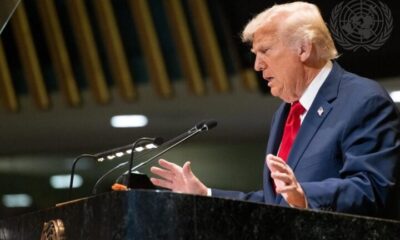
 BIG STORY4 days ago
BIG STORY4 days ago
 BIG STORY4 days ago
BIG STORY4 days ago
 BIG STORY3 days ago
BIG STORY3 days ago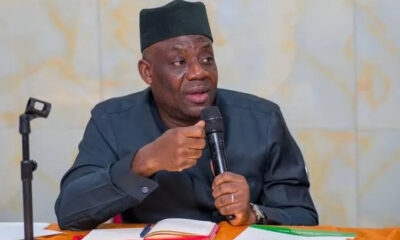
 BIG STORY15 hours ago
BIG STORY15 hours ago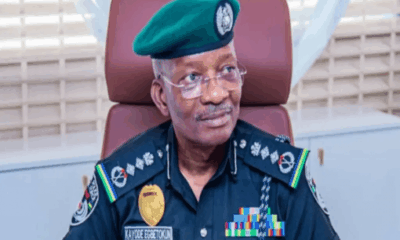
 BIG STORY4 days ago
BIG STORY4 days ago
 BIG STORY2 days ago
BIG STORY2 days ago
 BIG STORY5 days ago
BIG STORY5 days ago








